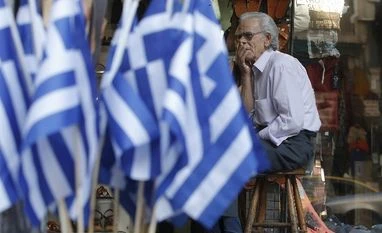The EU's economic affairs commissioner has called on Athens "not to play games" with the International Monetary Fund as the body decides whether to participate in Greece's latest bailout.
Pierre Moscovici insisted the IMF must play a role in the three-year, 86-billion-euro ($93-billion) rescue package agreed in July, but Greek Prime Minister Alexis Tsipras has said funds from the institution are not necessary.
"We don't play games with the IMF," Moscovici said in an interview with the German daily Suddeutsche Zeitung yesterday.
"For many (EU) member countries, not only Germany, the participation of the IMF is an absolute necessity," the former French finance minister added.
Germany, which led negotiations last year and where the public are largely critical of the idea of sending more funds to Greece, has said the IMF must be involved in any bailout.
The Washington-based institution teamed up with the EU on the first two bailouts for Greece, but held back from making a decision on the most recent round, citing insufficient reform pledges from the Greek authorities and European reluctance on restructuring the country's debt.
In December, Tsipras said that IMF funding was "not necessary", adding that the institution's position was "unconstructive".
But Klaus Regling, the head of the EU's rescue fund, said he assumed the IMF would participate in a bailout even if its contribution would likely be small.
Pierre Moscovici insisted the IMF must play a role in the three-year, 86-billion-euro ($93-billion) rescue package agreed in July, but Greek Prime Minister Alexis Tsipras has said funds from the institution are not necessary.
"We don't play games with the IMF," Moscovici said in an interview with the German daily Suddeutsche Zeitung yesterday.
More From This Section
"We are going to try to come to come to an agreement with the Fund," he said.
"For many (EU) member countries, not only Germany, the participation of the IMF is an absolute necessity," the former French finance minister added.
Germany, which led negotiations last year and where the public are largely critical of the idea of sending more funds to Greece, has said the IMF must be involved in any bailout.
The Washington-based institution teamed up with the EU on the first two bailouts for Greece, but held back from making a decision on the most recent round, citing insufficient reform pledges from the Greek authorities and European reluctance on restructuring the country's debt.
In December, Tsipras said that IMF funding was "not necessary", adding that the institution's position was "unconstructive".
But Klaus Regling, the head of the EU's rescue fund, said he assumed the IMF would participate in a bailout even if its contribution would likely be small.
)